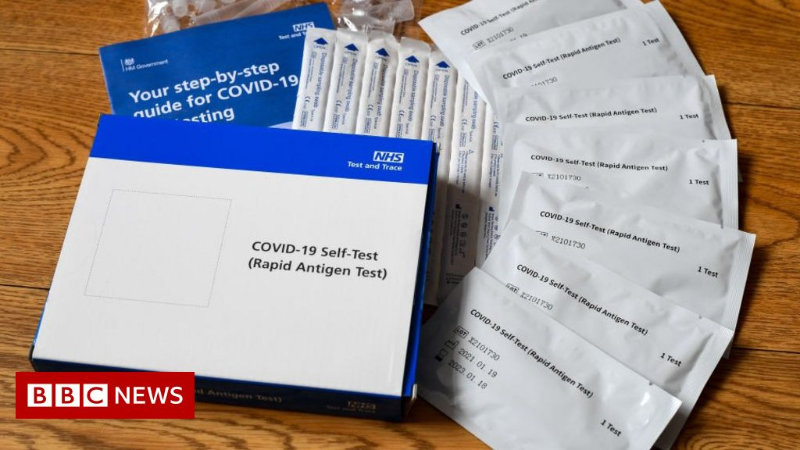Act now to overcome the Commonwealth litany of failure on COVID
January 5, 2022
The Commonwealth has learned nothing from this litany of previous mistakes and continues to ignore lessons learnt from overseas.
Back in November 2020 my daughter, living in London, had symptoms of COVID and chose to have a PCR test delivered to her home. She self-tested, and posted the swab back. Back in April 2021, she went online and ordered a pack of seven rapid antigen tests (RATs), these were delivered to home for her to use if asymptomatic but at risk of spreading the virus through social contact. She was invited to log her RAT results with the NHS. RATs were a key part of the culture of attempting to keep people safe while living with COVID in the UK.
This is the alternative reality to the Australian farce.
The fact that we dont live in this reality is a result of choices and priorities of the Commonwealth government. Unfortunately, the Commonwealth government has a near perfect track record of wrong choices in responding to the COVID pandemic. It made one right choice closing the borders early. After that, faced with two alternatives, it inevitably chose the wrong one. Wrong about the benefits of lockdowns in the quest for COVID zero. Wrong about vaccine procurement choices, and wrong about the vaccine rollout strategy.
Against this depressing background, we now see that the Commonwealth has learned nothing from this litany of previous mistakes. There are eight key failures of the current testing debacle:
1. The Commonwealth responded to the change in the nature of the virus in crisis mode. The Prime Minister called urgent national cabinet meetings at short notice, to announce ill-planned responses, poorly communicated, and without consensus with the states. Planning has been conspicuously absent, with responses driven by the need to respond politically to public anger about the latest failure.
2. The Commonwealth government in this case the Therapeutic Goods Administration was late to approve the use of RATs in Australia, approving the first only in mid-October 2020, months after the tests have been approved in other countries. Caution in the approval of therapeutics is an important population safeguard, but slow approval of diagnostics in a pandemic is less helpful.
3. Government communication about RATs was negative, highlighting their deficiencies not their utility and contributing to misinformation about the tests. All approved test get the same positive result as a PCR more than 80% of the time, with some > 95%.
4. A consequence of this slow and hesitant approval was that the Commonwealth and the states did not include RATs in their public health screening and testing regimes until PCR testing was overwhelmed. The late shift was accompanied by confusing messages to the public about where and when people should be tested with PCR or RATs.
5. The Commonwealth government determined that RATs were to be a private market opportunity not a universal public health measure. This is despite the fact that the benefits of RATs fall mainly on others. They are a classic example of market failure with people asked to pay privately to benefit others. There are now two ways of testing for infection or infectiousness, a PCR test and a RAT, one is charged for and one is not, one accessible to all without a financial barrier, one not. There is no logic in this position, which appears to have been driven by unscrupulous rent-seeking private operators who saw it as a market opportunity and lobbied the government to allow this.
6. The Commonwealth government did not ensure adequate supply of RATs or appropriate availability of PCR tests. Every Australian now has a PCR test horror story long waits, slow results and a saga about their RAT search.
7. The published numbers about daily new cases are essentially works of fiction as the Commonwealth did not put in place a results-recording regime. No one has any clue about how many cases are circulating in the community
8. The Commonwealth had the opportunity to encourage Australian manufacture of RATs but didnt, which has resulted in millions of these tests being exported when they are desperately needed in this country
Some of these mistakes can be easily rectified.
Firstly, the Commonwealth government should admit it got it wrong and make RATs freely available, although because of the supply failure the effect of that wont be seen immediately. This shift, prioritising access and equity, can easily be justified on both economic and public health grounds.
Secondly, long waits for PCR testing to be fixed. This means either introducing home-testing or more clinics or both. Lab capacity will also need to be addressed.
Thirdly introduce better monitoring: capture RAT results, and report third dose uptake routinely,
The failure to shift strategy in the face of the more easily transmissible omicron variant and maintaining rhetoric against public health measures (the let it rip approach) is demonstrably wrong. The track record of the Commonwealth governments response has been one mostly driven by political choices rather than public health or bureaucratic advice.
This was most obviously seen in slapping the Liberal party logo on announcements about vaccine procurement, but it is also seen in the inequitable privateer strategy for RATs. Australia is not well served if ideology in politics are the key drivers of public health policy in the midst of a pandemic.

